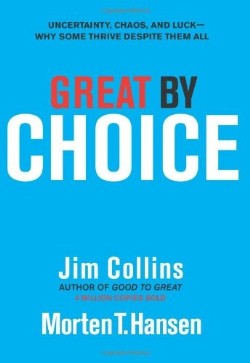4 Views On Christianity And Philosophy
$19.99
Philosophy and Christianity make truth claims about many of the same things. They both claim to provide answers to the deep questions of life. But how are they related to one another? Four Views on Christianity and Philosophy introduces readers to four predominant views on the relationship between philosophy and the Christian faith and their implications for life. Each author identifies the propositional relation between philosophy and Christianity along with a section devoted to the implications for living a life devoted to the pursuit of wisdom.
The contributors and views include:
*Graham Oppy-Conflict: Philosophy Trumps Christianity
*K. Scott Oliphint-Covenant: Christianity Trumps Philosophy
*Timothy McGrew-Convergence: Philosophy Confirms Christianity
*Paul Moser-Conformation: Philosophy Reconceived Under Christianity
General editors Paul M. Gould and Richard Davis explain the background to the discussion and provide some historical background in the introduction, as well as helpful summaries of each position in the conclusion. In the reader-friendly Counterpoints format, this book helps readers to reflect on the strengths and weaknesses of each view and draw informed conclusions in this much-debated topic.
in stock within 3-5 days of online purchase
SKU (ISBN): 9780310521143
ISBN10: 0310521149
Graham Oppy | K. Scott Oliphint | Timothy McGrew
Binding: Trade Paper
Published: September 2016
Counterpoints Bible And Theology
Publisher: Zondervan
Print On Demand Product
Related products
-
My Faith Confessions
$5.99My faith Confession is a colourfully illustrated confession book for children. It’s filled with Bible based confessions that will help children learn the importance of the principle of saying what God has said about them.
It’s a one-stop resource material that will inspire, sustain and build in children the culture of confession faith-filled words that would launch them into a glorious future.Add to cartin stock within 3-5 days of online purchase
-
Great By Choice
$29.99The new question
Ten years after the worldwide bestseller Good to Great, Jim Collins returns with another groundbreaking work, this time to ask: Why do some companies thrive in uncertainty, even chaos, and others do not? Based on nine years of research, buttressed by rigorous analysis and infused with engaging stories, Collins and his colleague, Morten Hansen, enumerate the principles for building a truly great enterprise in unpredictable, tumultuous, and fast-moving times.The new study
Great by Choice distinguishes itself from Collins’s prior work by its focus not just on performance, but also on the type of unstable environments faced by leaders today.With a team of more than twenty researchers, Collins and Hansen studied companies that rose to greatness-beating their industry indexes by a minimum of ten times over fifteen years-in environments characterized by big forces and rapid shifts that leaders could not predict or control. The research team then contrasted these “10X companies” to a carefully selected set of comparison companies that failed to achieve greatness in similarly extreme environments.
The new findings
The study results were full of provocative surprises. Such as:The best leaders were not more risk taking, more visionary, and more creative than the comparisons; they were more disciplined, more empirical, and more paranoid.
Innovation by itself turns out not to be the trump card in a chaotic and uncertain world; more important is the ability to scale innovation, to blend creativity with discipline.
Following the belief that leading in a “fast world” always requires “fast decisions” and “fast action” is a good way to get killed.
The great companies changed less in reaction to a radically changing world than the comparison companies.
The authors challenge conventional wisdom with thought-provoking, sticky, and supremely practical concepts. They include: 10Xers; the 20 Mile March; Fire Bullets, Then Cannonballs; Leading above the Death Line; Zoom Out, Then Zoom In; and the SMaC Recipe.Finally, in the last chapter, Collins and Hansen present their most provocative and original analysis: defining, quantifying, and studying the role of luck. The great companies and the leaders who built them were not luckier than the comparisons, but they did get a higher Return on Luck.
This book is classic Collins: contrarian, data-driven, and uplifting. He and Hansen show convincingly that, even in a chaotic and uncer
Add to cart1 in stock






Reviews
There are no reviews yet.